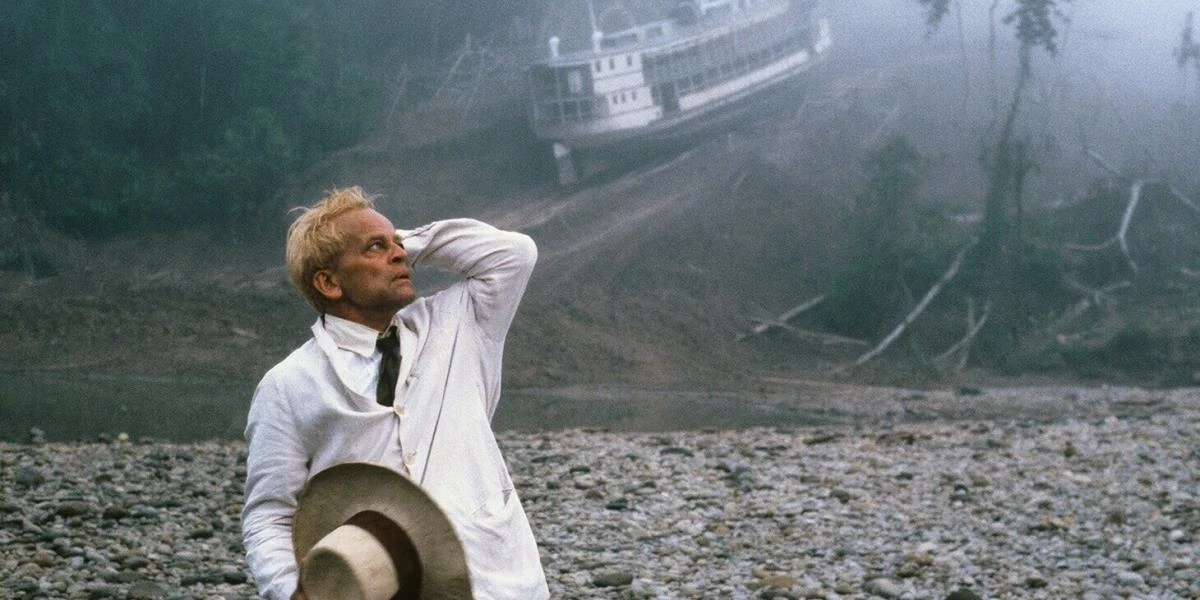
 15 October 21:00
15 October 21:00
Festa del cinema
Synopsis
The pinnacle of Herzog's cinema, Fitzcarraldo still impresses today for the power and the grandeur of its visuals and staging. While it may true that of all the German director’s films, on paper it appears the most linear and predictable production, at the same time, it cannot be denied that it is also the most memorable and decadent. Perhaps the last hurrah of a majestic and “wasteful” conceptualization of auteur cinema, one that makes production excesses, whether real or imagined, its distinctive signature. The equal of other great visionaries of the Seventh Art (von Stroheim, to name but one), Herzog seems willing to stop at nothing to realize his cinematic epic. He is not afraid to build a real ship, nor of placing it on the shoulders of hundreds of indigenous extras and getting them to carry the behemoth through the dangers of the Amazon rainforest, in a production that cost eight billion lire at the time and dragged on for three years, amidst a thousand perils and difficulties. What would nowadays be resolved with digital effects, Herzog wants in reality, as though he is seeking images untainted by globalization, capable of exuding blood and mud, tears and sweat. But beyond all of this, Fitzcarraldo is a disconcertingly profound plea for "diversity", for that "otherness" that forces us to understand ourselves. Because in Herzog's almost "Nietzschean" vision, when we look into the abyss that is the gaze of others, it is the abyss that looks into us and reveals the truth.
Free admission
Director
Werner Herzog
Werner Herzog has directed over 60 films, including narrative feature films, shorts, and documentaries, all revolving around the relationship between man and nature; on characters who are dreamers, on extraordinary feats; and on the search for what the filmmaker himself has dubbed “ecstatic truth”.
